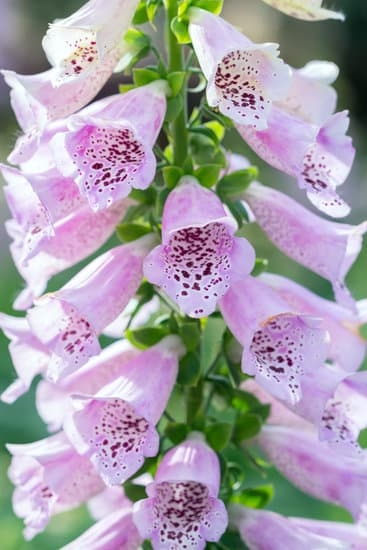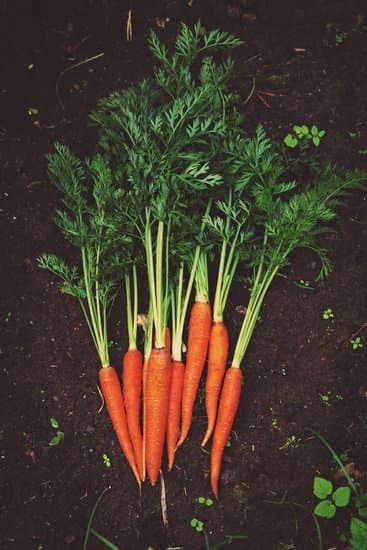Introduction
Gardening is a hobby that provides immense benefits both physically and mentally. It can be quite therapeutic, helping to reduce stress and promote relaxation. Working with plants also has the potential to improve physical health – studies have shown that gardening for just 30 minutes can burn up to 150 calories. It’s also an excellent way to get some much-needed vitamin D from spending time outdoors, as well as providing an opportunity to socialize and connect with nature.
Unfortunately, galvanized steel may not be the best material to use in the garden due to its corrosive properties. Galvanized steel is usually coated in zinc oxide which washes off into the soil when exposed to moisture over time. This can cause a range of issues including toxicity in some plants, a decrease in nutrient absorption, or even kill them altogether. Soils contaminated with zinc are also harder for beneficial microorganisms and earthworms to thrive in as it disrupts their natural environments. In addition, galvanized steel may rust after exposure to water or certain chemicals, creating unsightly marks on your garden environment and structures.
The Research
Galvanized steel is a popular material for gardening, as it is an affordable and durable. However, galvanized steel may not be the best choice for all gardening projects. Galvanization is the process of coating steel or iron with zinc to prevent oxidation and corrosion, but this coating can contain toxins like cadmium and chromium that can leach into the soil and contaminate plants, which can then be hazardous if consumed by humans or animals. Additionally, galvanization changes the pH level of the soil, making it more alkaline or acidic in some cases. This can cause poor absorption of key nutrients needed by plants to grow healthy, which could lead to stunted or wilting plants with yellowing leaves or brown spots on their leaves. Furthermore, galvanized steel rusts over time due to weather conditions and regular use, creating small particles that can alter the consistency and structure of soil. This can make it difficult for water to penetrate efficiently and roots to spread healthily. Ultimately, when considering a material for your garden project, you want to look for materials that are safe and beneficial for both your plants and environment.
The Risks
Galvanized steel is a type of metal that has been treated with a protective zinc coating. While this coating can protect the metal from corrosion, it can also be toxic to plants when used as part of a garden bed or pot. The zinc used in galvanized steel can leach into the soil and become absorbed by plant roots. This can cause several problems, such as stunted growth, abnormal foliage colors, leaf deformities and reduced yields. In severe cases, toxins may be taken up by edible parts of the plants, making them unsafe to eat.
What’s more, galvanized steel is typically not permeable which means water and air cannot pass through it easily. This limits the availability of oxygen for the plants’ root systems and makes it very difficult for water to drain from the soil in heavy rain or floods. As such, gardens made with galvanized steel are especially prone to excess moisture levels (or anaerobic soils) which lead to issues like root rot and other poor plant growth conditions.
Implications for Plants
Galvanized steel can have a significant and detrimental impact on the plants in your garden if not used with caution. The galvanizing process involves the application of zinc, which is toxic to vegetable and ornamental plants. Plants that are sensitive to zinc toxicity, such as blueberries, grapes, and roses, will suffer from stunted growth and chlorosis (yellowing) of the leaves when exposed to galvanized steel. At high concentrations, it can even cause an entire plant to die. In addition to these direct adverse effects on plants, zinc can also accumulate in soil over time due to leaching caused by acidic rain or irrigation water. This can cause a negative cascade of effects that results in poor nutrient availability and root damage in some plants. Furthermore, galvanized steel heats up more than other metals in your garden because it radiates heat more readily due to its shiny surface coloration. Heat stress can lead to burn injuries on temperature-sensitive crops such as tomatoes and herbs, decreasing yields for both flowers and food-bearing varieties.
Finding Solutions
Galvanized steel is a great material commonly used in construction and some industrial applications, however it isn’t ideal for all home gardening requirements. While it is durable and reasonably priced, galvanized steel can corrode when exposed to water, soil and other elements making it unsuitable for garden uses where those conditions are present. Additionally, galvanized steel tends to be heavier than other materials and difficult to work with when bending or shaping into decorative forms.
Fortunately, there are several aluminum-based alternatives available which can provide the same level of durability without any of the drawbacks of galvanized steel. Aluminum is lightweight yet strong, won’t rust or corrode in moist environments, can be molded easily into ornamental shapes and features a variety of finishes for a stylish option for your garden. Alternatively, pressure-treated wood and plastic are also good options as they stand up better against the elements outdoors compared to non-treated wood or metal options yet still come at an affordable price. For best results with extended longevity be sure to choose a product that has been treated with an appropriate sealer so that it will be protected against rot, insects and weather damage over time.
Summary
Galvanized steel is a durable and cost-effective material, but it’s not ideal for gardening. The zinc in the galvanizing process prevents corrosion, which is beneficial for outdoor use. However, the zinc coating can leach into the soil and potentially be toxic to plants. This can damage plant life surrounding your garden as well as any aquatic environment near your garden. Over time, the chemicals used in galvanization can cause metal buildup in the soil, leading to unhealthy or contaminated soil conditions. As a result, you may have difficulty achieving healthy growth or strong yields from your plants.
In addition to potential toxicity issues and metal buildup, galvanized steel’s tendency to heat up quickly could also be harmful to plants growing near it. Without proper insulation like mulch, this heat accumulation could burn roots or deteriorate leafy vegetables growing close to it. The high reflectivity of galvanized steel can also be damaging to delicate seedlings as well as beneficial insects such as honeybees that are drawn to light colors.
Lastly, if using a galvanized container as a planter box or raised bed, it’s important to note that they won’t last nearly as long as other materials like stainless steel without significant maintenance and periodic repairs over time. Galvanized steel tends to become brittle with age due its harsh exposure from weathering processes such as oxidation and erosion. Regular repainting may be necessary in order keep it from rusting out prematurely. Unfortunately all these factors combined with its potential for harming nearby vegetation make galvanized steel an unsuitable choice for gardens designed with longevity in mind.

Welcome to my gardening blog! I am passionate about plants and enjoy sharing my knowledge and experiences with others. In this blog, I will write about everything related to gardening, from tips on how to get started to updates on my own garden projects.





